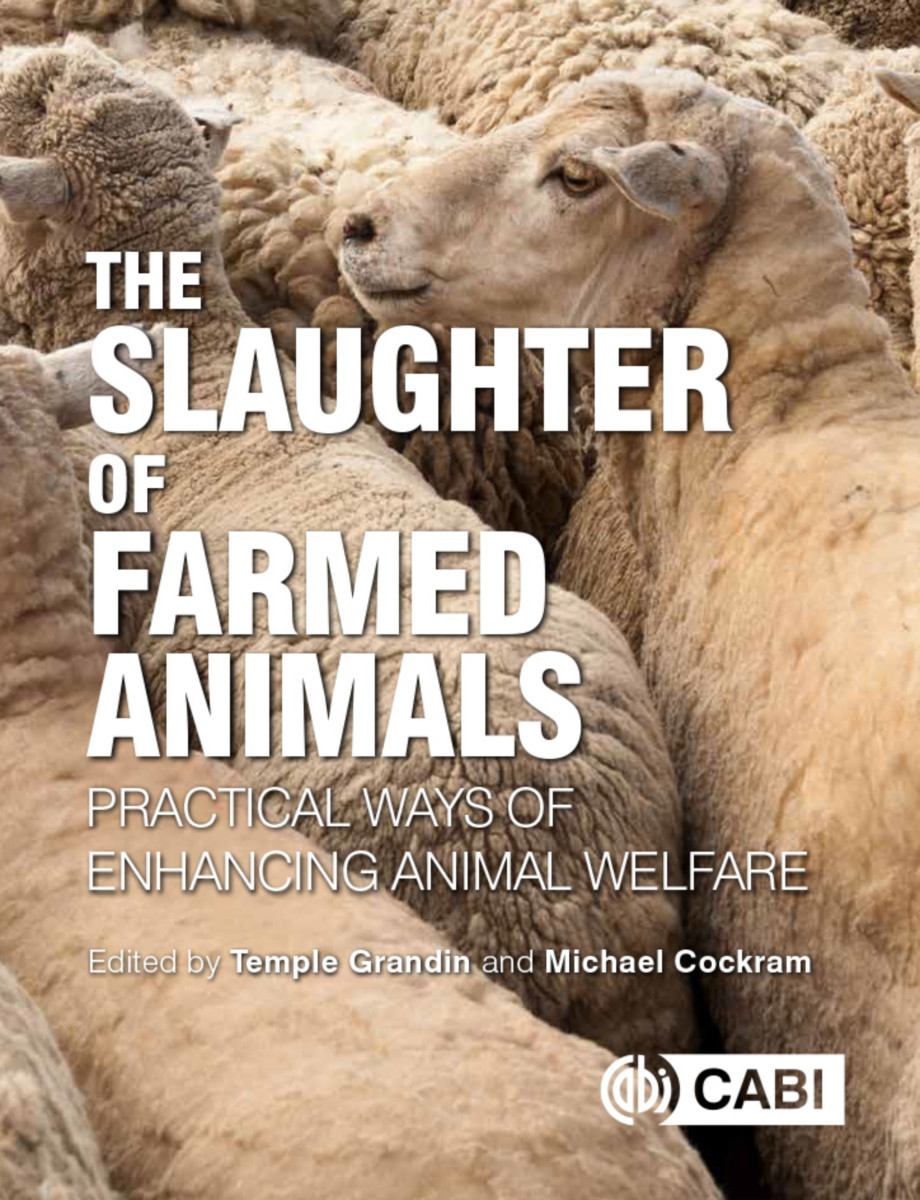The Slaughter of Farmed Animals
Practical Ways of Enhancing Animal Welfare
- Publisher
CABI - Published
12th June 2020 - ISBN 9781789240573
- Language English
- Pages 392 pp.
- Size 7" x 9"
From philosophical and ethical views on the slaughter of farmed livestock, to the intensely practical guidelines that need to be put in place to maximize animal welfare, this book provides a balance between evidence-based, scientific studies and down to earth practical advice. It is an important publication for government and private industry managers, veterinarians and animal welfare practitioners who will be implementing improvements in the humane slaughter of livestock throughout the world.
Key Points:
- Evidence-based and scientifically sound yet highly practical in its advice
- The book covers highly controversial issues such as the tradeoffs between balancing animal welfare concerns with commercial realities as well as religious slaughter and cultural differences in attitudes.
1: Introduction to Livestock and Poultry Welfare at Slaughter—Temple Grandin
2: Welfare Issues at Slaughter—Michael Cockram
3: Trade-offs: Balancing Livestock and Poultry Welfare Concerns with the Commercial Reality of Slaughter—Temple Grandin
4: Condition of Animals on Arrival at the Abattoir and Their Management During Lairage—Michael Cockram
5: Bruises on Livestock and Methods to Prevent Them—Lily Calloway-Edwards and Helen Kline
6: Behavioral Principles of Stockmanship and Abattoir Facility Design—Temple Grandin
7: Review of Scientific Research Studies on Poultry Stunning Methods—Lotta Berg and Mohan Raj
8: Stunning Poultry with Controlled Atmosphere Systems—Temple Grandin
9: Stunning Pigs and Sheep with Electricity or CO2—Temple Grandin
10: Basics of Captive Bolt Stunning of Cattle and Other Animals—Faith Baier and Dennis Wilson
11: Religious Slaughter and How to Improve Welfare During Both Kosher or Halal Methods—Temple Grandin and Erika Voogd
12: Auditing and Assessing the Welfare of Livestock and Poultry During Preslaughter Handling and Stunning—Temple Grandin
13: Determining Unconsciousness and Insensibility in Commercial Abattoirs—Temple Grandin
14: The Physiology of the Brain and Determining Insensibility and Unconsciousness—E.M. Claudia Terlouw
15: The Importance of Good Preslaughter Handling to Improve Meat Quality in Cattle, Pigs, Sheep, and Poultry—Temple Grandin
16: The Use of Abattoir Data to Provide Information on the Welfare of Livestock on the Farm and During Transport—Temple Grandin and Michael Cockram
17: Approaches to Legislation and Enforcement to Minimize Welfare Issues at Slaughter—Michael Cockram
18A: Animals Rights Viewpoint: The Abuse of Animals Won’t Stop Until we Stop Eating Meat—Peter Singer
18B: Ethical Defense of Eating Meat: The Place for Meat in the Diet—Frederic Leroy, Miki Ben-Dor and Frank M. Mitloehner
18c: Animal Welfare Viewpoint: Why Should Industry Worry About Food Animal Quality of Life—Bernard Rollin
18d: Animal Protectionist Viewpoint—Andy Lamey
18e: Animal Welfare Viewpoint - My Thoughts on Use of Animals for Food—Temple Grandin
Michael Cockram
Michael Cockram is a Professor at the Atlantic Veterinary College, University of Prince Edward Island, Canada where he is the Chair in Animal Welfare, at the Sir James Dunn Animal Welfare Centre. Dr. Cockram has a veterinary and academic background in animal welfare. He obtained his veterinary degree and PhD in the UK and then worked at the University of Edinburgh. He studies the welfare implications of the management of animals, and the relationships between health, physiology, behavior and animal science. He has published research on the transport, lairage and handling of livestock and poultry, and other animal welfare issues. Much of this research was conducted within commercial slaughter plants. He has worked with industry groups to apply the results of scientific research to commercial situations and has participated in the development of several animal welfare codes of practice. His previous book chapters have been on the welfare implications of health and disease, sheep transport and the effects of handling, transportation, lairage and slaughter on cattle welfare and beef quality. Dr. Cockram serves as the Welfare and Behavior Section Editor for Animal: An International Journal of Animal Bioscience; he organized the 2018 International Congress of the International Society for Applied Ethology; and is currently the Chair of the Large Animal Subcommittee of the Canadian Veterinary Medical Association, Animal Welfare Committee.
Temple Grandin
Temple Grandin is Professor of Animal Science at Colorado State University. Dr. Grandin's work includes design of animal handling systems, research on livestock behavior, and auditing animal welfare. She has visited 26 countries and has served on the OIE animal welfare ad hoc committee for slaughter. Her previous livestock books are: Livestock Handling and Transport, Genetics and the Behavior of Domestic Animals and Humane Livestock Handling. Her popular press books on animal behavior have been both U.S. and international bestsellers. Throughout her career, Dr. Grandin has worked to combine scientific research results with practical application in the field. In North America, half the cattle are handled in equipment she designed for meat plants. She has received awards for her work on animal welfare from both the livestock industry and animal welfare NGOs. She has awards from The Royal Society for the Prevention of Cruelty to Animals, The American Meat Institute, American Society for Animal Science and the Humane Society of the U.S.


